How to avoid 10 common ethics pitfalls
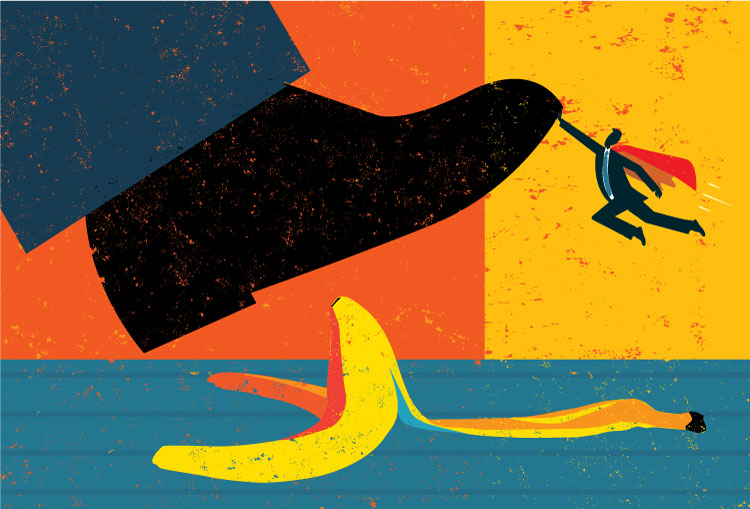
Shutterstock
Lawyers are stewards of their clients’ most sensitive and personal information. They serve as officers of the court and are in positions of public trust. But these high standards can lead to steep falls, and a lawyer who doesn’t carefully mind ethics obligations can quickly run afoul of the rules of professional responsi-bility.
Most states require ethics training as part of continuing legal education requirements. But a quick scan of disciplinary records reveals lawyers behaving badly on a spectrum of issues—from improper advertising to mishandling private information and everything in between.
Whether intentionally flouting ethics rules or unwittingly succumbing to the many pitfalls that can appear, lawyers regularly face discipline for crossing the line. Being hauled in front of a disciplinary board can cause professional embarrassment, suspension of a law license and even disbarment.
We asked legal ethics experts for a primer on the most pressing and pernicious ethics traps out there for the modern lawyer, along with best practices to avoid problems on the front end.
The lesson is to not only beware, but be aware.
Competency

Photo of Jan Jacobowitz courtesy of the University of Miami School of Law
Problem: Understanding technology and protecting client data
Arguably, a lawyer’s foremost duty is the duty of competency, outlined in Rule 1.1 of the ABA Model Rules of Professional Conduct. In 2012, Comment 8 to Rule 1.1 included the so-called technology clause, which provides: “To maintain the requisite knowledge and skill, a lawyer should keep abreast of changes in the law and its practice, including the benefits and risks associated with relevant technology.”
In this age of hacking in a rapidly changing digital world, protecting client data and cybersecurity are among the key reasons lawyers must stay current on technology.
“On the technology front … some lawyers remain relatively in the dark and risk breaching client confidentiality not only from a traditional cybersecurity breach but also from other ‘smaller’ misuses of technology,” says Jan Jacobowitz, an ethics expert who teaches at the University of Miami School of Law. She cites the examples of lawyers working on public Wi-Fi or not realizing they have pocket-dialed an opposing counsel who may then overhear a privileged or confidential conversation.
Best steps:
Lawyers can avail themselves of the many CLEs, books and vendor trainings in this area. Attorneys must take proactive steps to learn more about technology and understand the ethics breaches related to client data or privacy. “Regarding technology, although it may be a steep learning curve for some, there are many articles and books available to enlighten oneself, as well as an entire cottage industry of tech consultants that has emerged to assist the legal profession,” Jacobowitz says. “The old adage ‘know what you don’t know and seek assistance’ applies to technology and the law.”
Problem: Client neglect
“Neglect is one of the two most common reasons for discipline complaints,” says professor Leslie C. Levin, who teaches professional responsibility at the University of Connecticut School of Law.
Attorneys can stretch themselves thin and take on overwhelming caseloads that can cause their client matters to suffer.
“Neglect often occurs due to our cognitive biases, including overoptimism and overconfidence,” Levin says. “Lawyers—like all people—tend to overoptimistically believe they can do more in a day than they can actually accomplish. … This leads to ethical violations. Some lawyers will take on more work than they can handle, thinking that they can get it all done on time and in a competent fashion when they cannot.”
Best steps:
The best way to avoid this competency trap is to be aware of the danger of taking on too much.
“Lawyers need to be mindful of these cognitive biases, which distort our ability to accurately assess how long it takes to complete our work,” Levin says. “Lawyers should mentally add in some extra time for unexpected events that may cause delays,” she says. “They should ask for help from colleagues when they begin to feel overwhelmed. If they find themselves lying to a client about work they should have done, they should acknowledge to themselves that they have a problem and that they need to take immediate steps to address it.”
Billing

Susan Saab Fortney: “Many lawyers unwittingly fall into the ethics trap of fee modifications.” Photos courtesy of the University of Arizona and Fordham University School of Law; photo by Chad Ballenger/Texas A&M University School of Law
Problem: Fee shenanigans
Many ethics problems arise from overcharging for legal services or other billing matters. Model Rule 1.5 prohibits lawyers from charging unreasonable fees, and attempting to modify a fee arrangement with a client can pose an even bigger ethics issue.
“Many lawyers unwittingly fall into the ethics trap of fee modifications,” says professor Susan Saab Fortney, who teaches ethics at Texas A&M School of Law. “Some courts have treated modifications as business transactions subject to the strict requirements of Model Rule 1.8(a),” which covers the conditions under which a lawyer can enter a transaction adverse to a client’s interest. “The modification may also be subject to the presumption of voidability, meaning that the lawyer must show that the contract and circumstances of its formation were fair and reasonable to the client. In some cases, a client may assert that the modification was a breach of fiduciary duty.”
Best steps:
Lawyers should anticipate the possibility of a fee modification in the initial retainer agreement or fee schedule. In other words: Plan ahead.
“For example, the engagement agreement could spell out a formula for a performance bonus,” Fortney says. “Second, lawyers should specifically define the scope of work to be handled under flat fees. Third, if the original agreement does not account for increases or changes, special care should be taken to comply with ethics rules and fiduciary principles.”
Fortney explains that in law firms, the proposed modifications should be handled by someone in the firm unrelated to the representation. “Above all, lawyers should not quit doing work and try to pressure clients to pay higher fees when work is necessary to protect client interests,” she says. “The prudent course is to take steps to withdraw from representation when allowed for under applicable ethics rules and fiduciary principles.”
Lawyer-client relationship

Photo of Keith Swisher courtesy of the University of Arizona and Fordham University School of Law; photo by Chad Ballenger/Texas A&M University School of Law
Problem: Creating an accidental client
When lawyers communicate with people on webpages or other modes of communication, there is the potential for ethics problems if they’re not careful. While the lawyer assumes no lawyer-client relationship has been created, Keith Swisher, a legal ethics professor at the University of Arizona James E. Rogers College of Law, warns that some might believe otherwise. An individual might assume the lawyer, by answering their question online or conversing with them in another manner, might have agreed to representation because the lawyer is dispensing legal advice.
Best steps:
Swisher says lawyers “should generally consult only with plausible clients, i.e., persons or entities with whom the lawyers are actually considering an attorney-client relationship.” He also recommends “well-written and well-placed disclaimers on websites” to avoid the problem of what he terms “accidental clients.” He also cautions that lawyers should “avoid the proverbial cocktail conversation or random phone call.”
Criminal law
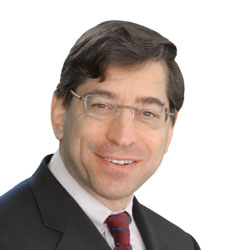
Bruce A. Green: “Defense counsel should avoid being alone with foreseeably hostile witnesses.” Photos courtesy of the University of Arizona and Fordham University School of Law; photo by Chad Ballenger/Texas A&M University School of Law
Problem: Potentially hostile witnesses
There are some potentially thorny ethics traps for lawyers practicing criminal law. Bruce A. Green, a professor at Fordham University School of Law who writes regularly on ethics issues in criminal law, points to the problem of a lawyer interviewing a witness who later turns out to be hostile. “Criminal defense lawyers have a duty to investigate, which typically includes making an effort to interview witnesses.”
Lawyers sometimes do these interviews alone, but Green says that can create problems if the witness later testifies differently in court. “The lawyer might like to elicit or introduce the witness’s prior statements,” he says. “But the lawyer will bump up against the rules that say a lawyer may not be both an advocate and a witness at trial.”
Best steps:
Green points to the language of ABA Criminal Justice Standard for the Defense Function 4-4.3(f), which reads: “When the need for corroboration of an interview is reasonably anticipated, counsel should be accompanied by another trusted and credible person during the interview. Defense counsel should avoid being alone with foreseeably hostile witnesses.”
Communication
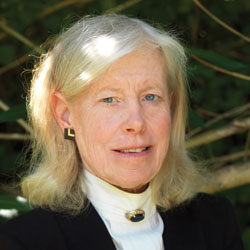
Photo of Deborah Rhode courtesy of Stanford University and John Browning
Problem: Exaggerating credentials
Some lawyers, in an effort to increase business, engage in puffery. A lawyer claims he has 20 years of experience, when in reality, he has had a law license for only seven years. A lawyer advertises himself as a seasoned courtroom litigator when he settles all his personal injury cases instead of taking them to trial. These exaggerations can run afoul of Model Rule 7.1, which prohibits lawyers from engaging in false and misleading communications. The rule is designed to protect consumers from attorneys who engage in deceptive advertising practices.
“Lawyers have an obvious interest in inflating their credentials and performance, which often borders on fraud and sometimes crosses the line,” says Stanford Law School professor Deborah Rhode, author of Cheating: Ethics in Everyday Life. “They are not alone. As I note in my recent book on cheating, one study on resume fraud found that two-fifths included information that was inconsistent with educational records.
“Other communications may seem more like puffing than outright lies but may be misleading to unsophisticated clients,” Rhode says. “The more that lawyers see others fudge the facts, the less they are to view their own conduct as problematic. The result is what psychologists call ‘ethical numbing,’ and it is not as costless as is often assumed. Such small deceptions often pave the way for greater misconduct and create a corrosive culture. Much of legal practice depends on a sense of honesty and trust, and when lawyers erode that perception, we all suffer.”
Best steps:
Lawyers shouldn’t exaggerate their credentials or engage in false statements about their qualifications or record. Such statements may cause clients to have unjustified expectations and can lead to other problems. As always, honesty is the best policy.
Problem: Managing negative reviews
No one likes to read negative reviews about themselves—whether it is a poor teaching evaluation, a bad review of a business or a one-star rating for professional legal services. But lawyers need to think twice before firing back with responses to negative reviews. It can create an ethics problem if the lawyer goes too far and reveals confidential client information. (See “Trashed by a Client Online?” page 30.)
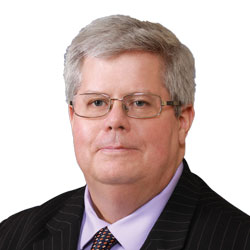
Photo courtesty of John G. Browning.
“As the tide has turned in recent years, and the internet and social media have become the leading sources for people to search for and comment on legal services, it’s become more important than ever for lawyers to have a good online presence and practice good ‘digital hygiene,’” says John G. Browning, an expert on social media and the law. “But when a lawyer sees a negative review of his/her services on either a consumer review site like Yelp or an attorney-specific site like Avvo.com, too many lawyers have a knee-jerk reaction of rushing to defend themselves, often revealing confidential client information in the process.”
Browning says several state ethics opinions note that “a negative online review does not merit the ‘self-defense’ approach of a disciplinary action or a legal malpractice suit, where a lawyer may reveal client confidential information in his/her own defense.”
A related problem can arise when a lawyer files a defamation lawsuit against a former client. That lawsuit could be considered a strategic lawsuit against public participation—a SLAPP suit.
Browning says the client might file a special motion to dismiss under a state anti-SLAPP law and could recover attorney fees from the suing attorney.
Best steps:
“I counsel lawyers to respond emphatically and professionally in responding online, inviting an offline conversation and keeping in mind that their response is being read not just by the ex-client to whom it’s being directed but to an online audience of countless potential clients,” Browning says.
Confidentiality

Photo of Sarah Lamdan courtesy of CUNY School of Law; photo by Lois
Problem: Big data and confidentiality
Arguably, the most sacrosanct ethics principle in law is confidentiality—preserving inviolate attorney-client dialogue and work product. This becomes more complicated in the digital age and the era of big data. Sarah Lamdan, a professor at the City University of New York School of Law who writes about these issues, says: “One has to wonder whether lawyers violate their confidentiality mandate when they use research programs, document-sharing systems and other workplace products that record lawyers’ research and writing.”
She says this is particularly true when companies sell data to law enforcement and other entities. She warns that “ethical issues … may arise when we use Westlaw and Lexis products, whose parent companies—RELX Group and Thomson Reuters—are major data brokers to law enforcement, credit rating and employment background companies, and others who may be able to gather information about lawyers’ cases through data collected by their legal research systems.”
Best steps:
Lamdan says lawyers can “push back on vendor practices that violate our ethics and … ask for assurances that these products don’t intermingle our work product or sensitive client data into their big data sales and collection services.” She provides the example of “asking Westlaw and Lexis to provide statements to lawyers promising that they will wall off their legal products from their data-brokering activities.” She notes that other services could expunge lawyer work-product data and take steps to ensure the data they do collect is encrypted and protected from data-gathering operations.
Lawyer well-being

Carol Langford: “Live smaller, lighter and ultimately happier lives.” Photo of Carol Langford courtesy of CUNY School of Law; photo by Lois
Problem: Personal life affects professional life
There are numerous ways a lawyer’s personal life might create problems. Lawyers sometimes face increased pressure to make more money, whether it’s to keep up with the Joneses or take care of family members.
Practitioners facing financial stress may fall prey to addictive behaviors such as gambling or substance abuse. Such an addiction can then come to dominate a lawyer’s life.
San Francisco Bay Area-based attorney Carol Langford, who represents lawyers in disciplinary matters, describes it as “lawyers doing things in their personal lives that allow trouble to slowly creep in and reside.”
She explains: “They buy big houses and then struggle in a recession to pay for their living costs, making them susceptible to foisting excessive fees on clients or taking advantage of them.” This can lead to the temptation to commingle client funds, charge excessive fees or bilk clients.
Best steps:
Langford says the solution is to “live smaller, lighter and ultimately happier lives.” This requires what she calls “real humility—face your mortality and eventual decline. Plan for it.” She describes it as “not a popular way of life these days, but a path to true happiness.”
Lawyers also should take greater advantage of the resources offered by lawyer assistance programs, which can provide a needed lifeline to attorneys whose personal challenges are negatively affecting their professional responsibilities.
Conflicts of Interest
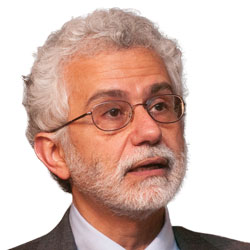
Photo of Peter A. Joy courtesy of Washington University School of Law
Problem: Lateral moves
Perhaps the ultimate duty a lawyer owes a client is the duty of loyalty. That loyalty can be tested when lawyers switch firms.
A lawyer from Firm A moves to Firm B. Firms A and B have lawyers on opposite sides of a very contentious case. The possibility exists that a conflict of interest can develop if there is not a sufficient screening system in place to determine whether the newly hired lawyer had access to confidential client information.
There is also the appearance of impropriety or conflict, even if none exists.
“There is increasing lawyer mobility with lawyers moving from one firm to another, and the hiring of lateral partners and associates can trigger conflicts of interest if not done right,” says professor Peter A. Joy, who teaches ethics at Washington University School of Law. “Some hiring firms overlook or ignore the steps they need to take, often resulting in being disqualified from representing a longtime client and sometimes triggering a malpractice claim.”
Best steps:
“Before hiring a lateral, the hiring firm has to do its due diligence to identify conflicts with existing clients and then determine if the jurisdiction permits ethical screening as a solution,” Joy says. “In some instances, such as a potential lateral partner or associate who has been representing a client in a matter adverse to the hiring firm’s client, only informed consent of the client adverse to the hiring firm’s client will waive the conflict, and the lateral will not be able to bring that client to the hiring firm.”
This article appeared in the June/July 2020 issue of the ABA Journal under the headline: “Do the Right Thing: How to avoid 10 common ethics pitfalls.”
David L. Hudson Jr., who teaches at Belmont University College of Law, is a regular contributor to the ABA Journal.



